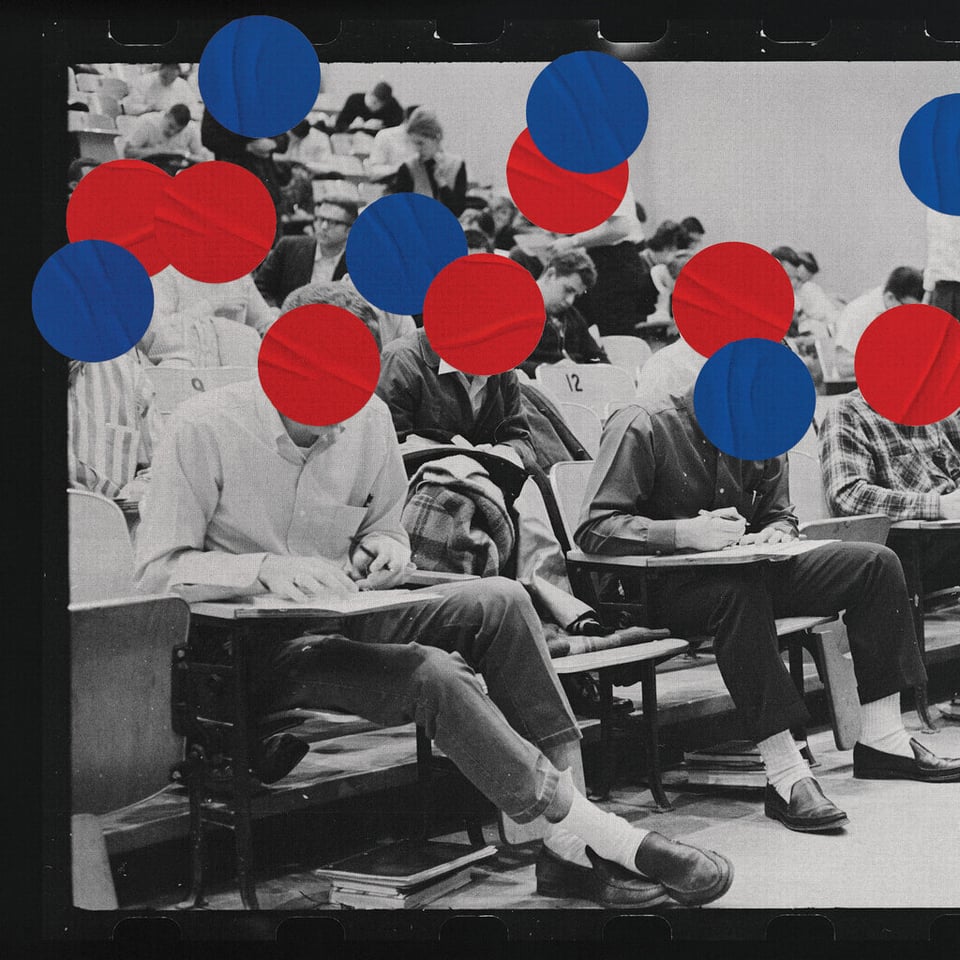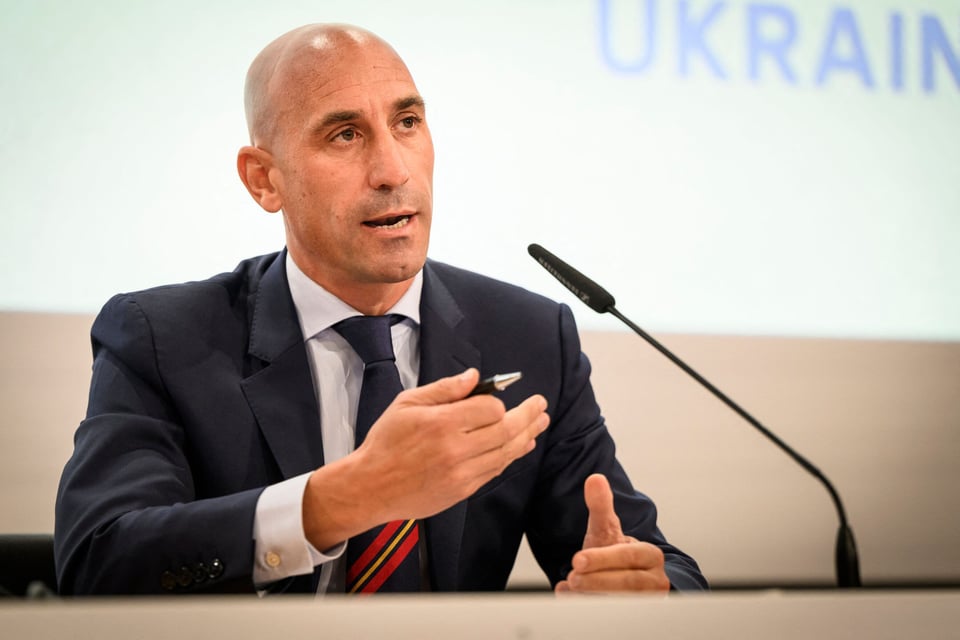Tuesday, August 22, 2023. Annette’s News Roundup.
I think the Roundup makes people feel not so alone.
To read an article excerpted in this Roundup, click on its blue title. Each “blue” article is hyperlinked so you can read the whole article.
Please feel free to share.
Invite at least one other person to subscribe today! buttondown.email/AnnettesNewsRoundup
_____________________
Joe is always busy.
The President and First Lady are in Maui.
🚨Since Republicans continue to lie about President Biden’s response to the Hawaii wildfires, he’s a new updated list of what his administration has done via the White House:
— Harry Sisson (@harryjsisson) August 21, 2023
•As of Saturday, August 19, there are more than 1,000 federal personnel on the ground in Maui… pic.twitter.com/17UryTsoRo
Since Republicans continue to lie about President Biden’s response to the Hawaii wildfires, he’s a new updated list of what his administration has done via the White House:
•As of Saturday, August 19, there are more than 1,000 federal personnel on the ground in Maui assisting residents in their greatest time of need, including more than 450 search and rescue team members.
•To date, the Biden-Harris Administration has approved nearly $7 million in assistance to nearly 2,200 households, including nearly $3 million in initial rental assistance.
•FEMA has made available more than 50,000 meals, 75,000 liters of water, 5,000 cots and 10,000 blankets and shelter supplies to the county government for distribution.
• The number of survivors in congregate shelters was reduced by 50% on Thursday. The Red Cross expects to move all survivors who are still in shelters into hotel rooms by next week.
•On Wednesday, President Biden made additional disaster funding available to the state of Hawaii.
•More than 600 personnel from the Department of Defense and 140 members of the Coast Guard are actively participating in the coordinated response to the Western Maui Wildfire.
•The U.S. Army Corps of Engineers has deployed 54 responders, 16 remote personnel, and 41 contractors who are assisting with public works and engineering support.
•The Environmental Protection Agency (EPA) has deployed 47 responders to Maui following the Hawaii wildfires and has a full incident command team on the ground working closely with FEMA and other federal, state, and local partners.
•The Department of Energy has deployed emergency responders to support the Federal response to the wildfires in Maui.
•The U.S. Department of Health and Human Services (HHS) Administration for Strategic Preparedness and Response (ASPR) deployed 85 responders from ASPR, including experts from the National Disaster Medical System’s Disaster Mortuary Operational Response Team and a Victim Identification Center team to assist Maui County with victim identification.
•The U.S. Small Business Administration (SBA) has more than 30 staff on the ground in Hawaii and are phasing in more. Survivors and businesses who register for FEMA assistance, will also be eligible for low-interest disaster loans.
•The U.S. Department of Agriculture Food and Nutrition Service approved waivers, which will allow SNAP households in Hawaii, including on Maui, to purchase hot foods with SNAP benefits through September 14; allow package size flexibility for those using the Special Supplemental Nutrition Program for Women, Infants, and Children (WIC) program through October 31 so they have more options to purchase what is available; and allow parents or guardians to pick up meals for children at grab ‘n go sites.
•The U.S. Department of Housing and Urban Development is providing a 90-day relief from foreclosures of Federal Housing Administration-insured mortgages and home equity conversion mortgages.
•The U.S. Consumer Financial Protection Bureau has created a disaster and emergencies guide to handling finances, including resources to help impacted residents recover, such as tackling housing issues, protecting your finances, dealing with property damage, managing your bills, and asking for help from financial companies like banks, credit cards and other lenders.
•The U.S. Department of Transportation currently has three temporary flight restrictions in place to help facilitate search and rescue missions and has worked with major U.S. airlines that serve Kahului Airport to promote flexible travel policies.
•The Heritage Emergency National Task Force (HENTF), a partnership between FEMA and Smithsonian Institution, is in contact with the National Heritage Responders: Hawaii cultural heritage emergency network.
Thank you, President Biden.
First campaign ad. Biden-Harris 2024. Touch 👇 to watch.
Holy cow. THIS is what a re-election ad looks like. Take a minute & watch President Biden’s first campaign ad about his economic success & accomplishments. The campaign is spending $27 MILLION to make sure as many people see this as possible. This is huge. pic.twitter.com/PQgMbwpygn
— Victor Shi (@Victorshi2020) August 21, 2023
_____________________
Updates on Trump arraignment from Georgia.
Hey, this defendant once lived in the White House.
Judge approves $200,000 bond for Trump in Georgia election case.

ATLANTA — An Atlanta-area judge approved a $200,000 bond Monday for former president Donald Trump, who is expected to surrender later this week on charges that he and 18 allies illegally conspired to try to overturn Trump’s 2020 election loss in Georgia.
The bond agreement, known as a consent bond order, sets strict rules for Trump’s release. The former president is not allowed to communicate with witnesses or co-defendants about the case, except through his lawyers, and he is barred from intimidating witnesses or co-defendants. He is also forbidden from making any “direct or indirect threat of any nature against the community or to any property in the community,” including in “posts on social media or reposts of posts” by others on social media.
“The defendant shall perform no act to intimidate any person known to him … to be a co-defendant or witness in this case or to otherwise obstruct the administration of justice,” the agreement says.
It is the first of Trump’s four criminal indictments where the former president has been asked to post bond. The agreement says Trump “may post bond as cash, through commercial surety or through the Fulton County Jail 10 % program” — where the arrestee pays 10 percent of the bail through a plan administered by the Fulton County Sheriff’s office.
Trump has been told to surrender at the Fulton County Jail by noon Friday for processing, but the document does not specify when Trump will travel to Atlanta. By reaching this agreement, Trump avoids an initial court appearance in the case, but he is expected to appear at an arraignment hearing in coming weeks. The former president posted on his social media platform, Truth Social, that he plans to travel to Atlanta on Thursday.
The agreement was approved by Fulton County Superior Court Judge Scott McAfee and posted on the court docket Monday afternoon, shortly after Trump’s Georgia-based legal team met with Fulton County prosecutors to negotiate terms of release and bond in the sweeping racketeering case. It was signed by Fulton County District Attorney Fani T. Willis (D) and Drew Findling, Marissa Goldberg and Jennifer Little, Trump’s Georgia attorneys. Prosecutors say Trump and 18 of his allies broke the law when they sought to overturn Joe Biden’s 2020 victory in Georgia. Trump was charged last week with 13 counts, including violating the state’s racketeering act, soliciting a public officer to violate their oath, conspiring to impersonate a public officer, conspiring to commit forgery in the first degree and conspiring to file false documents. The eighteen others also were charged. Prosecutors began bond negotiations Monday with attorneys representing some of those charged — a move that deviates from typical practice in Fulton County where those indicted by grand juries are often immediately arrested by law enforcement. After being taken to jail, individuals typically make an initial appearance before a magistrate judge, where bond and release conditions are negotiated.
In this case, Willis and her team moved to negotiate bond and release terms before those indicted surrender at the jail — a process that is expected to speed up processing at the facility, where decrepit conditions and several inmate deaths recently sparked a federal civil rights investigation at the Justice Department. Four of Trump’s co-defendants in the Georgia case also negotiated consent bond orders Monday, according to court filings. McAfee signed off on $100,000 bonds for attorneys Kenneth Chesebro and John Eastman, alleged architects of a scheme to use slates of alternate Trump electors to undermine the legitimate 2020 election results in key battleground states.
A $50,000 bond was approved for Ray Smith, an Atlanta attorney involved in Trump’s legal challenges in Georgia who advised the December 2020 meeting of Trump electors. And a $10,000 bond was negotiated for Scott Hall, a bail bondsman implicated in an election data breach in Coffee County, Ga. Those agreements also included restrictions on contacts between witnesses and co-defendants, though none were as strict as the rules set for Trump.
Bond documents for Chesebro, Eastman, Hall and Smith were signed by Grant Rood, a deputy Fulton County district attorney.
Trump’s bond agreement was signed by Willis, Fulton County’s top prosecutor who launched her investigation into alleged election interference more than 2½ years ago. Willis, a Black woman, has faced withering attacks from Trump and his allies and has been the subject of racist threats since launching the investigation. In his Truth Social post on Monday night, Trump again attacked Willis, calling her “a Radical Left District Attorney.”
Fulton County Sheriff Patrick Labat has told reporters that Trump and others charged in the case will be processed like any other arrestee — with fingerprints and a mug shot taken at the main county jail. On Monday afternoon, the sheriff’s office announced there would be a “hard lockdown of the area” in and around the jail “when former president Trump surrenders.”
Whether Trump would be processed at the jail has been the subject of speculation for weeks, even before his indictment, with many expecting the former president’s attorneys or the Secret Service to request that he be processed elsewhere.
It was not immediately clear if Trump’s legal team asked for any special accommodations for him. Findling, Trump’s lead attorney in Georgia, did not respond to a request for comment. But in an email, a spokesman for the Secret Service suggested that the agency had not sought to have Trump surrender at a different location.
“While operational security precludes us from going into specifics, the Secret Service will not seek any special accommodations outside of what would be required to ensure the former president’s continued safety,” Special Agent Steve Kopek, a Secret Service spokesman, said in an email. “As with any site visited by a protectee, the Secret Service is in constant coordination with the necessary entities to ensure protective requirements are met. We have the utmost confidence in the professionalism and commitment to security shared by our law enforcement partners.” (The Washington Post).
Trump says he will be booked Thursday in Atlanta.

Former President Donald Trump will turn himself in to prosecutors in Atlanta on Thursday, he said on Monday, after he was indicted by a Georgia grand jury last week on racketeering charges related to his efforts to overturn the 2020 presidential election in that state.
“I’ll be going to Atlanta, Georgia, on Thursday to be ARRESTED,” Trump wrote on Truth Social on Monday night, calling the case a “WITCH HUNT” and attacking Fulton County District Attorney Fani Willis, who led the investigation into Trump and his allies.
Willis indicated last week that all 19 defendants charged in the indictment had until Friday to surrender to prosecutors for booking. Former Trump lawyer John Eastman is slated to be booked on Wednesday, according to court filings in his California disbarment proceedings.
The Fulton County district attorney’s office did not immediately respond to a request to confirm the timing of Trump’s booking.
Earlier on Monday, Trump’s attorneys signed an order setting his bond at $200,000 and binding the former president to a set of rules that explicitly limit his ability to use social media to attack witnesses or co-defendants in the case.
Those rules include prohibition on any “direct or indirect threat of any nature against the community or to any property in the community,” according to the order, which specifically mentions social media posts.
Trump’s booking will take place one day after the GOP presidential primary debate — which Trump, the current frontrunner in the race, has said he plans to skip.
_____________________
Recent actions and attitudes toward American higher education should worry all of us.
Republicans Are Making the Liberal Arts Scarce in the Poorest States

In proposing last week to eliminate 169 faculty positions and cut more than 30 degree programs from its flagship university, West Virginia, the state with the fourth-highest poverty rate in the country, is engaging in a kind of educational gerrymandering. If you’re a West Virginian with plans to attend West Virginia University, be prepared to find yourself cut out of much of the best education that the school has traditionally offered, and many of the most basic parts of the education offered by comparable universities.
The planned cuts include the school’s program of world languages and literatures, along with graduate programs in mathematics and other degrees across the arts and pre-professional programs. The university is deciding, in effect, that certain citizens don’t get access to a liberal arts education.
Sadly, this is not just a local story. Politicians and state officials, often with the help of management consultants, are making liberal arts education scarce in some of the poorest states in the Union. This trend, typically led by Republican-controlled legislatures and often masquerading as budgetary necessity, threatens to have dire long-term effects on our already polarized and divided nation.
Administrators at West Virginia University devised the plan to restructure the school with the help of a consulting company called rpk Group, which also works with the Universities of Missouri, Kansas and Virginia, among other schools. The stated purpose of the proposal is to address an expected decline in student enrollment at the school that will create a projected $45 million budget deficit.
But the projected deficit is the result of overly aggressive planning more than it is a financial liability created by the humanities. E. Gordon Gee, the president of West Virginia University, once promised that the school would have 40,000 students by 2020, but the figure is still well under 30,000 across three campuses and is projected to drop. Mr. Gee is now covering up his own failures at the expense of his state’s citizens, instead of putting his efforts toward recruiting and obtaining donor money to fund a broad education for West Virginians.
What’s more, cutting humanities programs — which make up a sizable minority of the majors slated to be cut, alongside pre-professional and technical programs — is not necessarily the best way to save money. There is substantial evidence that humanities departments, unlike a majority of college athletics programs, often break even (and some may even subsidize the sciences). In defense of its proposed cuts, West Virginia University has cited declining interest in some of its humanities programs, but the absolute number of students enrolled is not the only measure of a department’s value.
The finances aren’t the point, anyway. The humanities are under threat more broadly across the nation because of the perceived left-wing ideology of the liberal arts. Book bans, attempts to undermine diversity efforts and remodeled school curriculums that teach that slavery was about “skill” development are part of a larger coordinated assault on the supposed “cultural Marxism” of the humanities. (That absurd idea rests in part on an antisemitic fantasy in which left-leaning philosophers like Theodor Adorno and Herbert Marcuse somehow took control of American culture after World War II.) To resist this assault, we must provide broad access to a true liberal arts education.
The campaign to overturn the liberal arts is politically motivated, through and through. The Democratic Party has lost the working class, while the Republican Party has made electoral gains among the least educated. With the help of consultants, Republicans seek to gut the (nonprofit or public) university in the name of a “profit” it doesn’t even intend to deliver. The point instead is to divide the electorate, and higher education is the tool.
I grew up in rural upstate New York. I was lucky: My parents put a liberal arts education above all other goals. But I know what it looks like when people are told they can’t have nice things, and it’s ugly. Taking liberal arts education away from the least privileged — implying that they are future laborers and nothing else — helps ensure that they develop a resentment of “elites.” That’s an animus whose political consequences should be uncomfortably familiar by now.
The resentment fostered by cuts like those at West Virginia University won’t be aimed at the true culprits. The long-term effect will be bitterness toward those who have access to the liberal arts education that remains on offer in many blue states and at elite universities — what the scholar Lisa Corrigan calls a “two-tier educational system.” This outcome is likely to fortify many Republican voting strongholds.
Democratic politicians need to fight back in these culture wars, defending the humanities (rather than disparaging them) and loudly dissenting from the view that education is just job training. College presidents like Mr. Gee should promote and recruit rather than cut and run. An unholy alliance of far-right ideology and mercenary venture capitalists has politicized the classroom. We must reject their vision of America and insist that a liberal arts education accessible to more than just the elite is one of the great foundations of a democracy. (New York Times).
Let’s stop pretending college degrees don’t matter.
Scanning the headlines, it would be easy to believe that a college degree is becoming increasingly irrelevant in a fast-evolving job market.
Fourteen states, including 10 in the past year alone, have dropped degree requirements for many state jobs. The trend is gathering steam at many high-profile businesses, notably tech firms like IBM and Accenture. All this comes as college enrollment has dropped, with an assist from a tight job market and worries about student debt.
In a world marked by continued racial disparities in employment and economic well-being, there is a growing outcry that expensive college degrees represent a barrier rather than a steppingstone. The argument goes: Many talented people, including disadvantaged minorities, may possess the skills needed for many white-collar roles without holding the formal credentials listed as prerequisites.
These advocates, who can be found on the left and the right, mean well. Nonetheless, a look at the data suggests the skills-based hiring movement may actually amount to little more than populist virtue signaling. The evidence so far suggests that the movement may do little to expand economic opportunity. What’s worse, it sends a degree-skeptical message that risks hurting rather than helping those who most would benefit most from pursuing an education beyond high school.
As always, it’s useful to look at what economists call “revealed preferences” — or what people do, regardless of what they say.
The economic advantage of getting a college degree remains at just about an all-time high when compared with the average earnings of Americans with only a high-school diploma. In recent years, a typical college graduate earned a median wage premium of more than $30,000, or almost 75 percent more than those who had completed just high school, a 2019 New York Fed analysis found.
In April 2022, a major study by the Society for Human Resource Management, or S.H.R.M., found that 71 percent of executives said that some alternative credentials are equivalent to a bachelor’s degree. But only 58 percent of supervisors (most likely beneath those executives on the organization chart) concurred, a figure that fell to 36 percent for human resources professionals, or those typically closest to hiring decisions.
In another experiment by S.H.R.M., hiring managers and human resources professionals evaluated hypothetical job applicants with traditional degrees more highly than those with alternative credentials, particularly when the job ad used strict degree requirements. This was the case even when the latter were viewed as more likely to have the technical skills needed for the job.
Another study often cited as evidence of declining employer interest in college degrees doesn’t fully capture what’s happening. The Burning Glass Institute’s “Emerging Degree Reset” report from last year pointed to a decline in degree requirements for middle-skill jobs in particular. But the analysis was based on online job postings, not actual hiring decisions. A later data analysis found that in some key respects, “employers are hiring more (not less) college grads.”
What about all the Silicon Valley firms so often associated with the “death of the degree” narrative? Here, too, revealed preferences are, well, revealing.
Degree requirements in formal job listings remain in the 70- to 90-percent range at blue-chip firms like Google, Apple and Intel. Even much-hyped alternative-credential programs — like the online Grow with Google certificates, which offer professional training in high-demand tech fields like cybersecurity and digital support — aren’t designed to get certificate holders hired at Google.
Maggie Johnson, Google’s vice president of education and university programs, told me that although the company has made a small number of hires from top coding boot camps, “I still doubt that boot camp graduates can learn new languages and technologies as quickly as someone with” a computer science degree.
There is a reason college graduates earn so much more, and it isn’t just because they’ve got an extra piece of paper.
The huge growth in the wage premium for college degrees reflects not state bureaucracies or corporate HR policies, but century-long economic changes that generate more jobs requiring the abilities and knowledge acquired in college.
The broad education and targeted skills that college graduates usually obtain prepare them for career success. That includes analytical and communications abilities, tailored preparation in popular subjects like business, nursing and computer science, or liberal arts majors that have significant long-term benefits. When undergrads are also able to develop their social capitalto build professional networks, so much the better. It’s a category error to treat college degrees like dubious occupational licenses that have become barriers to entry in certain fields.
College degree alternatives may still play a worthwhile role for some students. For all the benefits that accrue to earning traditional two- and four-year degrees, large populations of learners need something different. Tailored, short-term, skills-based programs and credentials in everything from data science to graphic design should be widely accessible — and they should be simple to acquire and reacquire over a lifetime, to meet changing needs. Whenever possible, students should be able to combine them, over time, into two- or four-year degrees. Remember, much of the growth in skills-based credentials seems to be coming from people who already have degrees and want to supplement them with additional skills. They’re taking a “both/and” approach to get ahead, not giving up on degrees altogether.
We often hear that the strong preference for degrees isn’t fair to the majority of Americans who didn’t go to college. But that majority is falling fast, and the percentage of college-educated American adults is pushing 50 percent when associate degrees are included. And while the percentage of Black and Latino college graduates is significantly lower, it is far higher than a few decades earlier. In fact, in 1960, only 41 percent of Americans had completed high school. It might have been plausible then to argue that plenty of dropouts had great talents and were unfairly penalized by high school diploma requirements. But it would have been badly misguided to oppose efforts to vastly improve high school graduation rates, which stand at 91 percent today.
College degree requirements aren’t sacred. But they reflect the unmistakable reality that higher education helps people do well. (New York Times).
Mass Exodus at New College After DeSantis’ Conservative Takeover.
New College of Florida is in complete chaos after Gov. Ron DeSantis staged a conservative takeover of the school earlier this year. Now, with the semester’s start just weeks away, students are being greeted with housing issues, canceled classes, and missing professors. Since DeSantis appointed six new right-wing trustees to the school’s board in January, more than 40 faculty members have quit the small public college. Students are outraged as the dropped courses are setting them back in their majors. One parent said the school told their son to just “choose something else.” “These are young adults who are not looking to fill up a semester with high school electives. It’s not like, ‘Oh, chorus is closed, let me just go take that art class,’” Dani Delaney told Inside Higher Ed. Delaney’s son is transferring to Hampshire College in Massachusetts, which extended guaranteed admissionto New College students after DeSantis’ takeover. (The Daily Beast).
_____________________
Sexism rears its head again as the women’s World Cup ends.
First, as this article 👇 explains, this happened in England.
England’s women gathering their runner up medals after Sunday’s World Cup Final.
How the Premier League [the highest level of the male English football league system] snubbed the Women’s World Cup.
On Sunday, it was pretty jarring to go straight from the high tension, emotion and drama of a World Cup final into… the build-up to Aston Villa vs Everton.
This is nothing against Villa or Everton, two fine institutions who went on to prove that, despite nearly two centuries of tradition and precedent, you don’t actually need two teams to fulfil a professional football fixture, Villa instead sticking four goals past a collection of blue-clad traffic cones.
But this was a fairly bog-standard Premier League game, the sort the neutral observer will watch and almost certainly forget about by Tuesday. To have an actual World Cup final almost be its support act was, at best, strange.
So why was there any top-level men’s football on at all? Could it not have taken a step back, just for one day?
You might think it would be silly to postpone all men’s football on the day of the Women’s World Cup final but… why? The people who decide these things knew it was going to happen, even if they didn’t know England were going to be in it. They could easily have distributed the Premier League games scheduled for this weekend elsewhere so that this showpiece was given similar attention as its male equivalent.
Nottingham Forest’s home game against Sheffield United this weekend was moved to Friday because it clashed with a cricket game at Trent Bridge, just across Radcliffe Road. If a game can be moved to stop the roads of suburban Nottingham from getting too snarled up on a Saturday, it can be moved to make way for a literal World Cup final.
It all adds to the faint idea that even with England reaching an actual World Cup final, it wasn’t taken entirely seriously in the UK. You can throw in the absence of any British royals, despite one of them being the literal president of the FA, the Prince of Wales instead sending a good luck video recorded with his daughter. See! He does care about women! His child is one of them!
Yes, it’s a long way and yes, from an environmental point of view it wouldn’t be ideal to fly to the other side of the world for just one game, but do we really think he would have stayed home if the men had reached a final in Sydney?
And that’s not even getting into Gianni Infantino, who quite literally moved to Qatar for a year before the men’s World Cup but only bothered with a few games and a patronising speech at this one.
The authorities will tell you they take the women’s game just as seriously as the men’s, but those are words. Their actions this weekend proved otherwise.(The Athletic)
Spain rails against football chief who kissed World Cup winner on the lips.

Spanish football chief Luis Rubiales is under fire for “sexual violence” on Monday, after kissing a victorious Spain player on the lips after the Women’s World Cup final on Sunday.
As the Spanish players were presented with their gold medals by FIFA President Gianni Infantino, Rubiales — who kissed and vigorously hugged multiple Spanish players during the ceremony — tightly gripped Jenni Hermoso’s head in his hands and planted a kiss on her lips.
In Instagram Live footage from Spain’s locker room celebrations, Hermoso said that she “didn’t like it.” And Spain’s left-wing politicians went much further.
Equality Minister Irene Montero, from the left-wing Podemos party, said: “Let’s not take it for granted that kissing without consent is something that ‘happens.’ It is a form of sexual violence that we women suffer on a daily basis and until now invisible, and that we cannot normalize. It is the task of society as a whole. Consent at the center. Only yes is yes.” Spanish Culture and Sport Minister Miquel Iceta, a Catalan socialist, also said the kiss was “unacceptable” and that Rubiales should “apologize.
Ione Belarra, secretary-general of Podemos, added: “What we all think, if they do that with all of Spain watching, what won’t they do in private. Sexual violence against women has to end.”
It wasn’t just the kiss that landed Rubiales in hot water.
During boisterous post-match celebrations Rubiales — after promising the champion team a holiday to Ibiza — also said that he would marry Hermoso there. He also appeared to perform a crotch-grabbing celebration during the match.
The Spanish football federation, acting for Hermoso, released a statement about the kiss late Sunday evening. “It was a totally spontaneous mutual gesture because of the immense joy that winning a World Cup brings,” said Hermoso. “The president and I have a great relationship, his behaviour with all of us has been outstanding and it was a natural gesture of affection and gratitude.”
The outcry comes against the backdrop of a long-running feud between the Spanish football establishment and its women players, 15 of whom wrote letters last September telling the association they were quitting the national team over the federation’s approach to running it and amid a dispute with the coach Jorge Vilda. While a handful, including Barcelona star player Aitana Bonmatí, eventually returned to the squad this year, some continued to strike and missed what turned out to be a triumphant World Cup campaign — though one which is unlikely to heal divisions inside Spanish women’s football.
During the most-watched Women’s World Cup ever, Spain beat England 1-0 on Sunday in the final in Sydney thanks to a goal from Real Madrid’s Olga Carmona, who later found out that her father had died before the match took place. (Politico).
One more thing.
Spanish Soccer Official Apologizes, Sort of, for Kissing World Cup Winner
A day after drawing outrage by grabbing and forcefully kissing the Spanish forward Jennifer Hermoso on the lips during the Women’s World Cup medals ceremony, Spain’s soccer federation chief issued something of an apology.
“I have to apologize,” the official, Luis Rubiales, said in a video broadcast by the federation on Monday afternoon. “Probably I made a mistake.”
“Probably I made a mistake,” Luis Rubiales, the Spanish soccer federation chief, said after grabbing Jennifer Hermoso and planting a kiss full on her mouth, igniting howls of outrage on social media.
At first, Mr. Rubiales responded to the latest controversy with flippancy, brushing off his critics as “losers” in a late-night interview with the Cadena Cope radio station before boarding a flight back to Spain from Australia.
“We shouldn’t pay attention to idiots and stupid people,” he said then, claiming that the kiss had been just a “peck between two friends celebrating something.”
But by the time his long-haul flight landed in Spain on Monday morning, condemnation of his behavior was widespread in Spain. (New York Times).
Nearly 2 million fans attended World Cup matches this year.
— Billie Jean King (@BillieJeanKing) August 21, 2023
Believe in women athletes, invest in women athletes, and watch women athletes continue to make history and achieve greatness.
Keep the momentum going. #FIFAWWC pic.twitter.com/QvOuvfDrmz
_____________________
As the President and First Lady head to Maui, here is how to help Hawaii.
Obama’s list of where to give..

The Maui Strong Fund from Hawaiʻi Community Foundation
The Maui Strong Fund from Hawaiʻi Community Foundation supports rapid response, food, shelter, and financial assistance for residents impacted by the wildfires on Maui. Donate here
(https://www.hawaiicommunityfoundation.org/strengthening/maui-strong-fund).
Red Cross
The American Red Cross is on the ground and providing safe shelter, food, and relief supplies to Maui. Visit www.redcross.org
(http://www.redcross.org/) to donate or call 1-800-RED-CROSS.
Maui Rapid Response
The Maui Mutual Aid Fund supports Maui residents, people with disabilities, elderly residents and people who are uninsured or underinsured. Donate here
(http://www.mauirapidresponse.org/).
Maui Humane Society
The Maui Humane Society
(https://www.mauihumanesociety.org/) is providing pet supplies, emergency kits and care for sick, injured, and lost pets. Donate here
(https://www.mauihumanesociety.org/donate-olx/).
New Life Kahuku Inc.
New Life Kahuku Inc.
(https://www.newlifekahuku.com/)
is a nonprofit supplying food and hygiene products for Lāhainā residents. Donate
here
(https://www.kindridgiving.com/App/Form/f4cdc525-aae9-45d4-8fc6-367c226bf0c9)
.
Wildfire Fund
The Wildfire Fund will aid relief and recovery efforts in affected communities. Donate
here.
(https://www.gofundme.com/f/wildfire-2023-relief-fund)
_____________________
